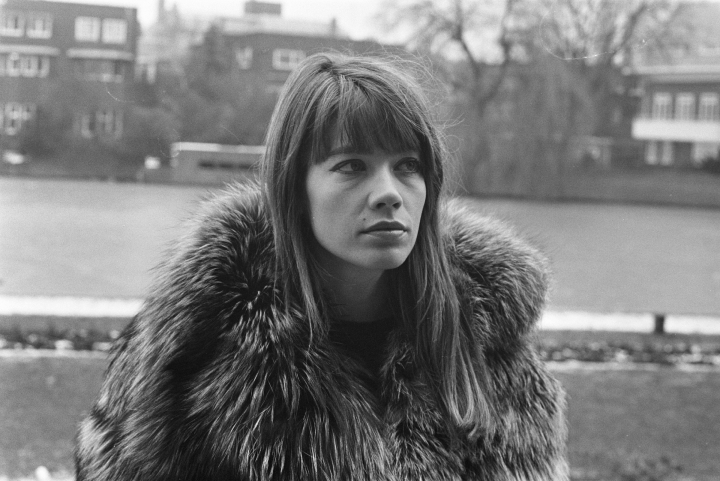Music
Sayan Ghosh: ‘La Question’ by Françoise Hardy
Sunday, March 11, 2018 - 4:28pm

Wikimedia Commons
Sayan Ghosh
Daily World Music Columnist
Mick Jagger called her his “ideal woman.” Carly Simon always “tried to dress like her.” Alexa Chung and Rei Kawakubo cite her as inspirations. Françoise Hardy’s long and prolific career has transcended the French music world, transforming her into a global icon of music and fashion. Her breezy ode to youth “Le temps de l’amour” is featured in “Moonrise Kingdom,” and for the most part, represents what most people — including me at one point — recognize from her vast discography. Yet her first departure from her trademark catchy, but disposable, style of pop remains my favorite and her musical peak.
The increased musical maturity in Hardy’s 1971 album
La Question is a result of her collaboration with a Brazilian guitarist named Tuca. While it is not exactly a bossa nova album per se, the somewhat subdued and melancholic nature of the Brazilian genre permeates the album. Tuca’s orchestral compositions in songs like “La question” and “Mer” avoid being overtly sappy and sentimental, and subtly complement the sparse, minimalist instrumental arrangements.
Compared with her poppier previous output, the melodies on
La Question are noticeably richer and more complex. While Hardy does not showcase much vocal range, her incredibly soothing, rather restrained voice is given a wider variety of tones and textures to explore. At its core, much of the album deals with the idea of longing, and that idea is never more apparent than when Hardy simply extends a word or phrase, such as “viens” (“Come”) or “mer” (“Sea”) in her trademark, breathy manner.
Hardy’s lyrics on
La Question range from sensual to wistful, but never overwrought. The title track is a beautiful meditation on what could be interpreted as a dying relationship, with Hardy singing: “Je ne sais pas pourquoi je reste dans une mer où je me noie” (“I don’t know why I’m staying in a sea which I’ll drown in”), but also confessing to her lover: “Tu es ma question sans réponse, mon cri muet et mon silence” (“You are my question without an answer, my mute cry and my silence”).
On “Mer,” another lyrical standout, Hardy paints a poetic picture of the sea, ultimately saying: “Mon amour est si lourd à porter, je voudrais doucement me coucher dans le mer” (“My love is too heavy to bear, I want to softly sleep in the sea”). However, she can be equally frank as poetic, as evident on the following track, “Oui je dis adieu,” in which she tells a former lover: “Avec toi la vie est pleine de saudades tout le temps, ça ne me dit plus rien, cette perte de mon temps” (“With you life is full of saudade, this waste of time means nothing to me anymore”), using the Portuguese word “saudade.”
On
La Question, Hardy’s voice lives up to its full potential with Tuca’s delicate yet emotive arrangements, creating a unique melancholic atmosphere. Four decades after its release, it remains a perfect soundtrack to a reflective rainy day.
source : https://www.michigandaily.com/section/arts/sayan-ghosh-la-question-fran%C3%A7oise-hardy















